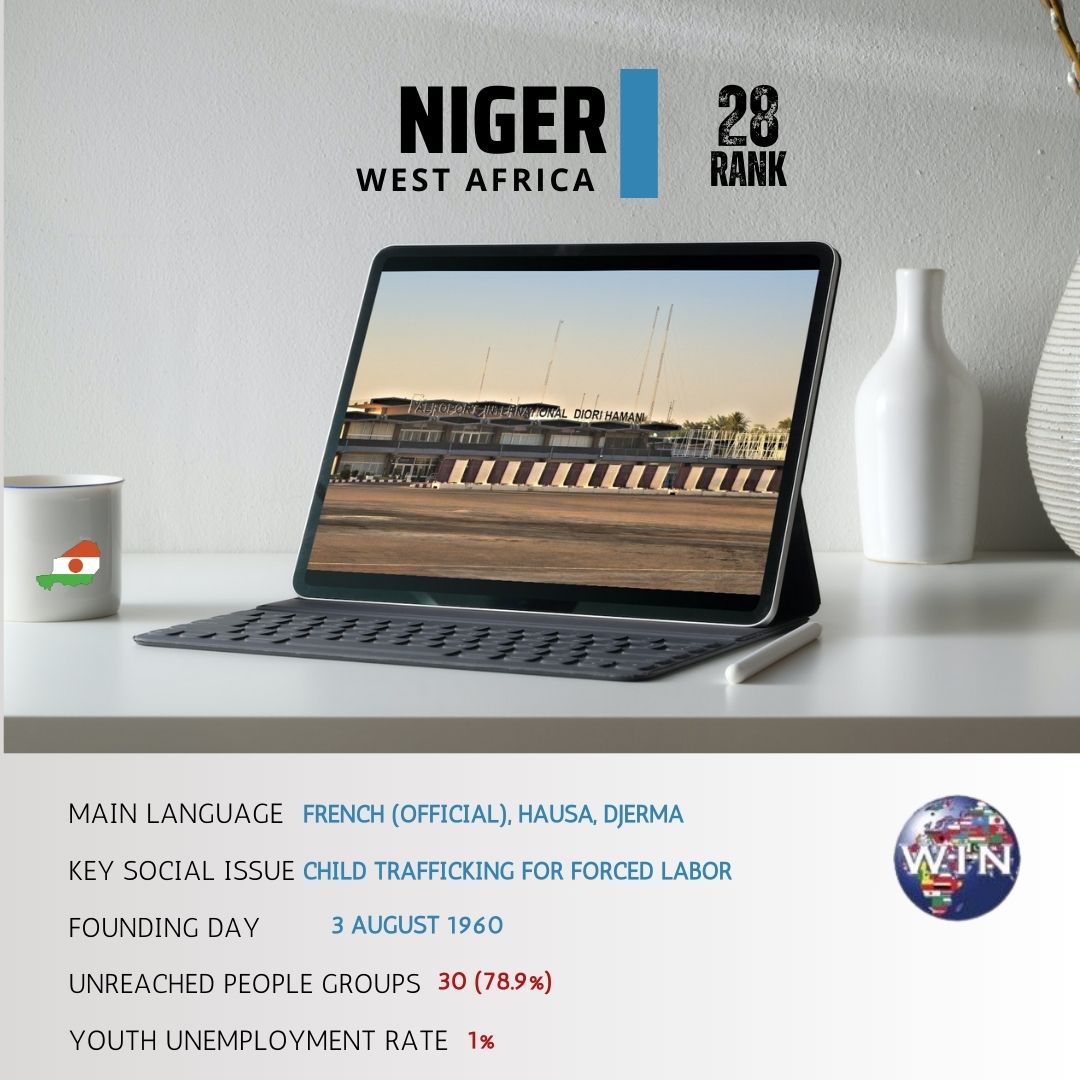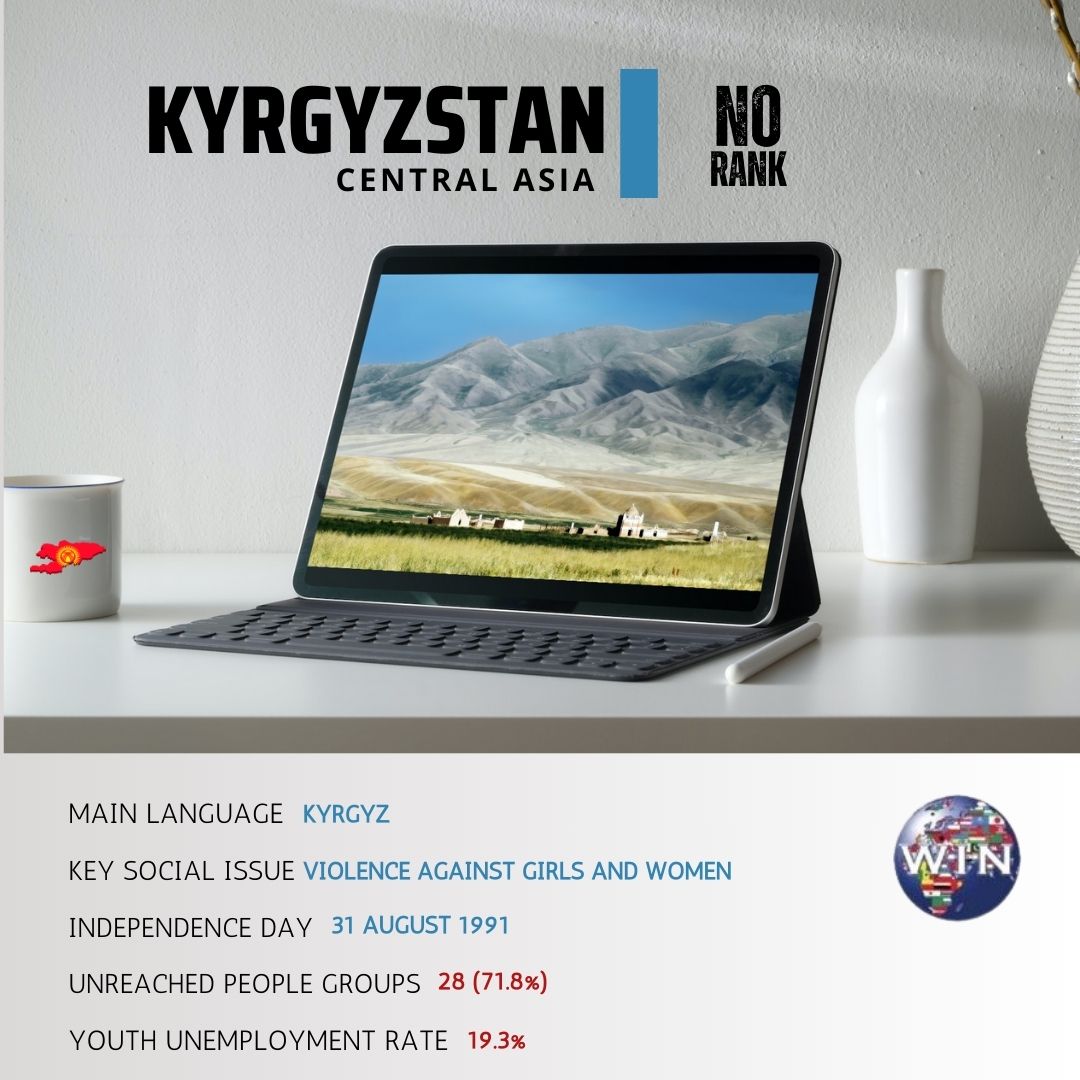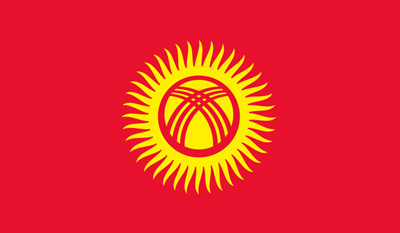Day 7
Niger
Niger recently moved out of the Economic Community of est African States (ECOWAS) along with junta-ruled Mali and Burkina-Faso. The demand by member nations to return to democracy did not agree with the military junta leadership. The subsequent sanctions by the African member countries created a problematic economic situation in all three countries. The scenario is quite baffling since all three countries, including Niger, face extreme poverty. Their newfound confidence comes from Russian assurances of free grain supply in exchange for their allegiance and access to their oil, minerals, uranium, and other resources. The Ukraine-Russia war might be on the borders of Europe. However, the consequences have reached as far as West Africa.
We pray that the Lord of Heaven’s Armies lashes the military junta with His whip as He did when Gideon triumphed over Midianites (The Bible, Isaiah 10:26).
We pray for God’s protection of journalists, political leaders, and civilians who are targets of the military junta in Niger (The Bible, Psalm 91).
Niger is in 28th position in the World Watch report 2023 by Open Doors as Christian persecution is increasing. Mohamed Bazoum is the President since 2 April 2021 and the current Prime Minister of Niger is Ouhoumoudou Mahamadou, since 3 April 2021. Niger is one of the poorest countries in the world where the agricultural economy is frequently destroyed by drought, making it insufficient to support the growing population. Unfortunately, slavery is still practiced in isolated areas of the country. Nigerian children are trafficked for labor in gold mines, sexual exploitation, and begging. Women are abducted and sold into domestic servitude or prostitution, and young boys are kidnapped for work in stone quarries. Less than one percent of the population claims the Christian faith. Ninety-seven percent of the nation is Muslim, with 76% of the people listed as unreached ethnic groups. An increased threat of violence from militant groups like Boko Haram against Christians persists.
Day 7
Kyrgyzstan
Women and young girls are vulnerable to sexual and physical abuse throughout Central Asia. In Kyrgyzstan, the so-called protectors of the law are often the perpetrating criminals. Crimes reported against women and girls are not indicative of the real numbers at all. Government officials, judicial officers, and high-ranking police personnel fudge the numbers. This exercise is not to shield the country from a negative international image. It is to protect the perpetrators of heinous crimes against women and girls. They are often from the police department. Real action is a reality only in a few cases due to public protests. Victims face additional trauma from their own families and the community for reporting the crime against them. There is a consensus among the police and the public that they can get away with violent crimes against women and girls. This evil nexus cannot continue to torment our dear sisters in Kyrgyzstan. The Church is the greatest authority on this planet, and we have to fight this evil on our knees.
Lord, repay the perverted perpetrators in Kyrgyzstan with Your divine retribution and wrath according to the evil they have done. When evil comes against innocent women and girls like a flood, oh Lord, raise a standard against them (The Bible, Isaiah 59:19).
Kyrgyzstan remains one of the poorest countries in post-Soviet Central Asia. Unemployment, corruption, inflation, and religious and human-rights violations still plague people’s lives, as it did before the Tulip Revolution. In 2010 a parliamentary constitution with elaborate checks and balances was adopted, making Kyrgyzstan the only Central Asian country in which the president is limited to a single term. Most Kyrgyz are nominal Muslims, but a growing Islamic identity is concerning. A lack of growth in the Church has been observed. There is diversity even within Kyrgyz culture: city, youth, and village cultures, Russian and Kyrgyz speakers, let alone other people groups including Uzbeks, Tajiks, and Uyghurs who live in Kyrgyzstan. This poses a very real challenge for effective church planting.





